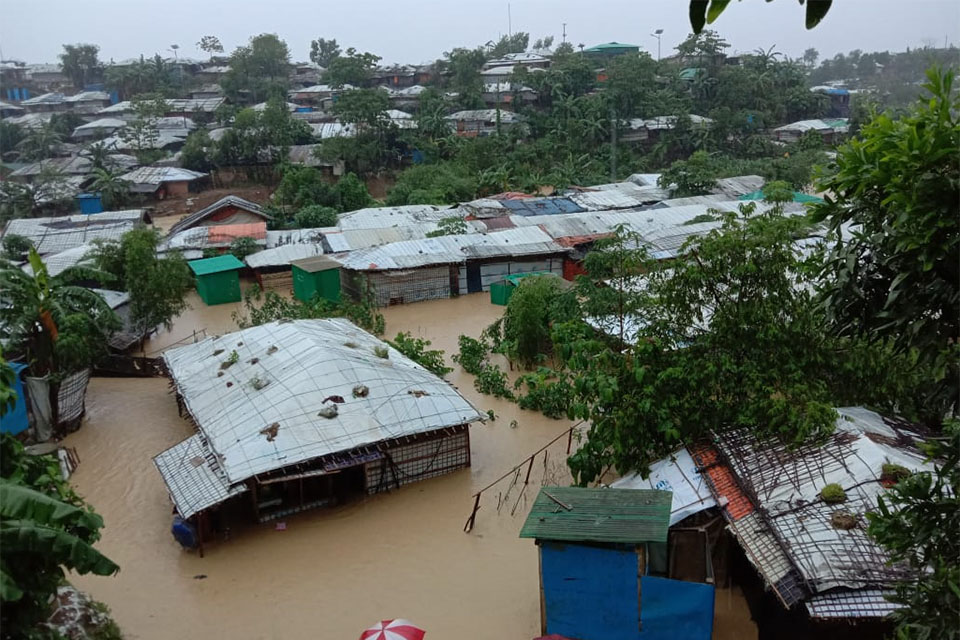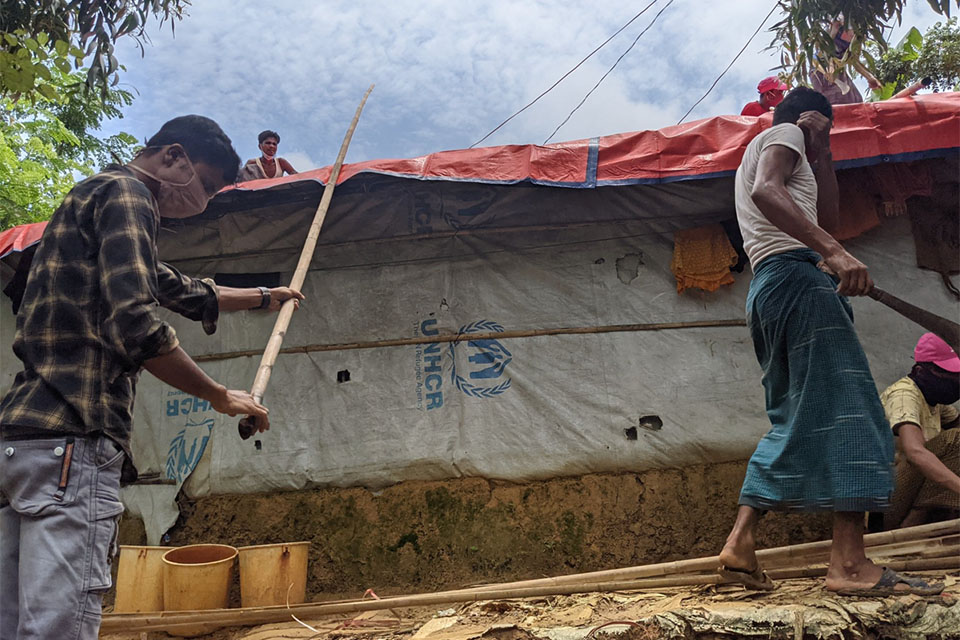For several days, the incessant downpour of heavy rains and strong winds in southern Bangladesh forced refugees and their hosts to evacuate the refugee sites. Flash floods and landslides have taken six lives and left around 6,400 shelters damaged or destroyed. More than 46,000 refugees have been affected, of which around 21,000 have been displaced.
The support of donors and partners enabled UNHCR’s network of Emergency Response Teams to immediately support the government-led rescue operations of affected families. Refugee volunteers trained by UNHCR, along with partners, have been working day and night despite the heavy rains to assist families in urgent need, including rescuing refugees from destructed shelters from the landslides.
As of the latest update, 982 households have been supported with shelter material kits, and propositioned items including tarpaulins, solar lamps and jerry cans are being distributed. Over 500 households have received chlorinated water through the distribution of jerrycans, and over 5,000 refugee protection volunteers throughout the camps including community outreach members, have been assisting older persons and other refugees with specific needs. Teams are also continuously assessing the damage to shelters and had initiated immediate shelter repairs and site improvements. Response teams have also given top priority to ensure that essential services are accessible to the victims of the calamity.
Climate change brings new misery for Rohingya refugees
Among the thousands of victims of this calamity, Meher Khatun, 60, recounts her experience of the flooding as she witnessed the water starting to come into the bamboo and tarpaulin shelter that she shares with her family in a refugee camp in the Cox’s Bazar District. “I felt helpless, I didn’t understand where to go,” said Meher. “The water was rising so fast that we couldn’t go back. Most of our belongings were washed away.”
Meher continues to share that this experience was unlike any other in the nearly four years that she has been living in the camp after fleeing to Bangladesh. In a matter of hours, the flood has risen to their chests, and they were forced to escape with only their stove, gas cylinder, and a solar panel. “I haven’t seen such a flood before,” said Meher. “In Myanmar, I lived in a place where the land was even, and it didn’t flood in monsoon.” Worried about their shelter, she continues, “everything we left [is now] under the water. We’re not sure when the rain will stop, and we’ll be able to go back to our homes.”

Now, she and her son’s family are staying in a learning center, along with about 20 other families displaced by the flooding. Even in their temporary shelter, rain drips through the roof and the conditions are barely conducive for living.
Since 2017, reforestation efforts have been ongoing to stabilize hillsides aiming to reduce flooding and landslide risks in Cox’s Bazar, following the arrival of more than 700,000 Rohingya refugees from Myanmar. UNHCR and its partners have also been ensuring readiness of teams, volunteers, and the community in times of emergencies. However, Bangladesh remains to be prone to climate change and the storms brought about by the monsoon season have increased in frequency and intensity, leaving the country vulnerable to climate disasters.
Share on Facebook Share on Twitter




